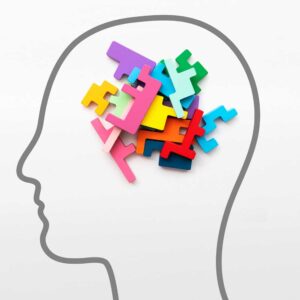
In the 21st century, Humans have achieved incredible technological feats. We’ve gone beyond Earth, setting foot on Mars and the Moon. Our dream of 5G internet and space exploration has become real. Human life has witnessed an unprecedented level of comfort and convenience, marking a significant departure from the challenges of the past. In this era, Human existence has transcended mere comfort; it has embraced a realm of luxury and affluence that was once the stuff of dreams.
But amidst our material wealth and technological progress, a troubling question emerges: Why are mental health disorders spreading like an unyielding epidemic in our society? Ironically, developed Nations often grapple with more severe mental health issues than their developing counterparts.
 The Mental Health Landscape: The 21st century has ushered in remarkable advancements while introducing a complex and demanding world. Let’s delve into the top 10 mental health disorders that have become prevalent in this era and explore some possible solutions.
The Mental Health Landscape: The 21st century has ushered in remarkable advancements while introducing a complex and demanding world. Let’s delve into the top 10 mental health disorders that have become prevalent in this era and explore some possible solutions.
- Depression and Anxiety: These are characterized by persistent sadness or excessive worry.
Reach out to friends or a therapist for support and practice relaxation techniques like deep breathing or meditation. - Bipolar Disorder: Involves extreme mood swings from high energy (mania) to deep depression.
Medication and therapy can help stabilize moods, and create a daily routine to maintain stability. - Schizophrenia: Affects thinking, emotions, and behavior.
Medication and therapy can manage symptoms, and establish a supportive network of friends and family. - Obsessive-Compulsive Disorder (OCD): Involves intrusive thoughts and repetitive behaviors.
Cognitive-behavioral therapy and practice mindfulness. - Post-Traumatic Stress Disorder (PTSD): Arises from traumatic experiences.
Therapy, such as EMDR, and relaxation techniques like meditation. - Attention-Deficit Hyperactivity Disorder (ADHD): Impacts focus and attention.
Use tools like planners and timers to stay organized - Eating Disorders: Include Anorexia, Bulimia, and Binge-eating disorder.
Seek professional help and focus on body positivity. - Borderline Personality Disorder (BPD): Involves unstable relationships and emotions.
Dialectical Behaviour Therapy (DBT) and mindfulness techniques can help manage emotions; and establish boundaries in relationships. - Stress-Related Disorders: Result from chronic stress.
Practice stress-reduction techniques like exercise, meditation, and time management; prioritize self-care and seek counselling when needed. - Substance Use Disorders: Addiction to drugs or alcohol
Reach out to addiction support groups and consider rehabilitation programs.
 It’s crucial to understand that these suggested solutions are general guidelines, and individuals grappling with these disorders should prioritize seeking professional assistance for a comprehensive assessment and a personalized treatment plan. If you happen to be in Hyderabad, you can reach out to Islaah Centre for Psychological Wellness. They are dedicated to helping children and teenagers with their mental health. Their goal is to find effective solutions to various problems, especially for young kids. https://islaahwellness.com/contact-us/
It’s crucial to understand that these suggested solutions are general guidelines, and individuals grappling with these disorders should prioritize seeking professional assistance for a comprehensive assessment and a personalized treatment plan. If you happen to be in Hyderabad, you can reach out to Islaah Centre for Psychological Wellness. They are dedicated to helping children and teenagers with their mental health. Their goal is to find effective solutions to various problems, especially for young kids. https://islaahwellness.com/contact-us/
Mental health disorders are intricate, and their effective management typically necessitates a multifaceted approach involving therapies, medications, and a robust support network.
Written by: Mohd. Talib Khan
